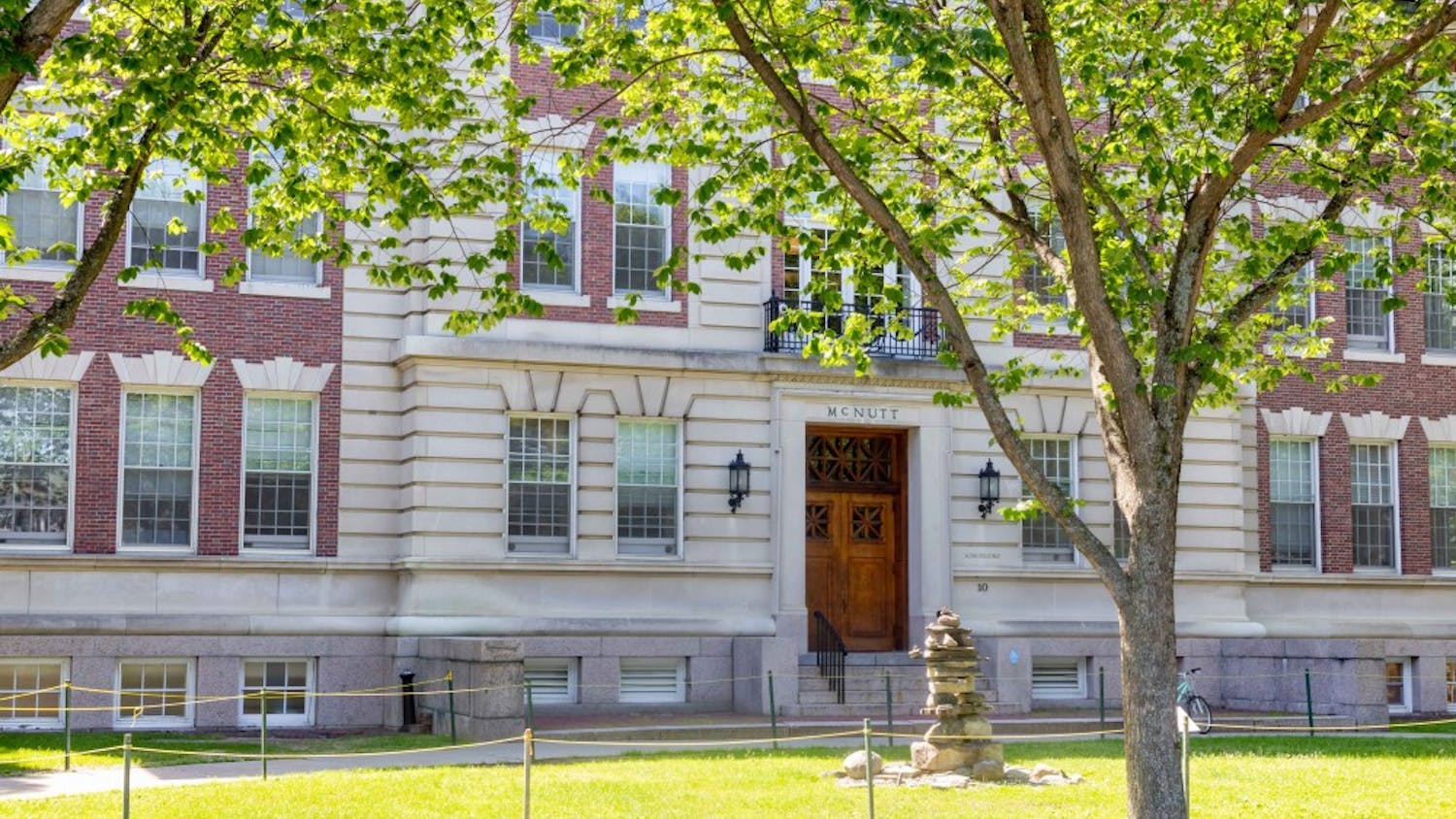With admissions testing and non-essential travel on hold, current high school juniors have been left stressed over college admissions requirements and facing the prospect of getting to know Dartmouth and other colleges remotely.
After the College Board canceled SAT testing in March, May and June and the ACT rescheduled its April 4 test for June 13, many colleges — including Cornell University — have made SAT and ACT scores optional for the Class of 2025.
While Dartmouth has made SAT subject tests “optional” instead of “recommended” for the Class of 2025, the College has kept the SAT or ACT requirement, according to dean of admissions and financial aid Lee Coffin, who added that the Dartmouth application itself remains unchanged.
The College Board has said that it plans to begin testing again in August “if it is safe from a public health standpoint.” Coffin added that with regard to testing policies, the admissions office plans to “figure it out” as the testing landscape evolves and will reassess its policy should testing not become available before October.
Jill Cervantes, chair of post high school counseling at New Trier High School in Winnetka, Illinois, said that she supports colleges that have chosen to make testing optional, noting that her students have expressed anxiety surrounding testing.
“Many colleges have moved to a test-optional option,” Cervantes said, “But there's still that unknown about what that will really mean, though. Will [students] be given a fair shake, or will there be some sort of negative consequence if they are unable to test or unable to improve on a score?”
Other tests, including Advanced Placement tests, are still being offered in an at-home, online format. Judith Murciano, a junior at Pine Crest School in Fort Lauderdale, Florida, said that while most of the colleges she is considering have changed some of their admissions criteria around SAT and ACT testing, she is still nervous about how her AP exam scores will be affected by the remote format.
“I’m nervous that [the online test] won't be able to test my full knowledge on the subject,” Murciano said. “As to SAT and ACT, I think the College Board is on top of that.”
Many juniors were just starting to visit colleges when Dartmouth announced that students would not return to campus for the spring term, Coffin said. As a result, the admissions office has put together alternatives to in-person programming.
“It’s forcing us to be really creative,” Coffin said, adding that the admissions office has been asking themselves what parts of the in-person college experience they can reproduce virtually.
Coffin said that the admissions office is currently planning two scenarios for the Class of 2025’s admissions process — one for a reopened campus, and another for remote outreach during an extended period of quarantine and social distancing.
Hannah Epstein, a high school junior at Noble and Greenough School in Dedham, Massachusetts, said that she was planning on doing the majority of her college tours over her spring break. Instead, she has had to get to know schools online, which she said is more challenging.
“You can’t really see the atmosphere as much, which I consider a very important part of the college process,” Epstein said. “I was lucky to see a few schools, but that's not a lot to go off of in terms of comparing schools to each other.”
She added that the virtual tours have been “very helpful,” but said that they do not allow prospective students to connect with the tour guide or the other students on the tour. “It's been hard to decide what I really like about a school,” Epstein said.
Traditional college tours, as well as the Dartmouth Bound program — which brings students from low-income backgrounds to the school’s campus — have been moved online. Coffin said that Dimensions, a program which brings admitted students to Dartmouth’s campus each April, will be extremely important next year for the Class of 2025, since it will be the first time that many admitted students get a chance to see the school.
Tour guide Snghyun Byon ’22 said that the admissions office has been working to create and expand online programming to give prospective applicants a sense of the school’s culture and atmosphere and “put a face to a Dartmouth experience.”
Despite the admissions office’s best efforts to bring students to Dartmouth’s campus virtually, Coffin said that he is uncertain how application numbers will be affected by the COVID-19 pandemic. According to Coffin, many high school juniors are nervous that should many members of the Class of 2024 take gap years, the acceptance rate for the Class of 2025 will be lower. He said that while this is a possibility, it is also possible that fewer students will apply amid remote recruitment.
“Do students have a sense of where they will apply?” Coffin asked, “Will they over-apply because they don’t know? Will they under-apply because they just don't know?”
Standardized testing and getting to know different universities aren’t high school juniors’ only concerns. Murciano said that high school classes have also become more challenging for her now that they are conducted remotely.
“I know me, personally, and many others are not thriving in an at-home environment, and it could be affecting some people’s grades and overall transcripts,” Murciano said.
Coffin agreed that remote high school may disrupt high school honors curricula and class rankings, posing yet another challenge for members of the Class of 2025.
While Epstein is not receiving grades during the remote term, as her school has moved to a pass/fail system, she said that she is not free from academic pressure.
“I think a lot of people have the idea that this is making junior spring easier on us because we aren't getting letter grades,” Epstein said, “But that's definitely not the case. We’re still working hard and trying to prepare for our future,” adding that looking at colleges has taken “a lot longer” than expected.
Correction appended (June 9, 2020): A previous version of this article noted that Judith Murciano is a junior at Pine Crest School in Boca Raton, Florida. The article has been updated to reflect that Murciano attends Pine Crest School in Fort Lauderdale.




